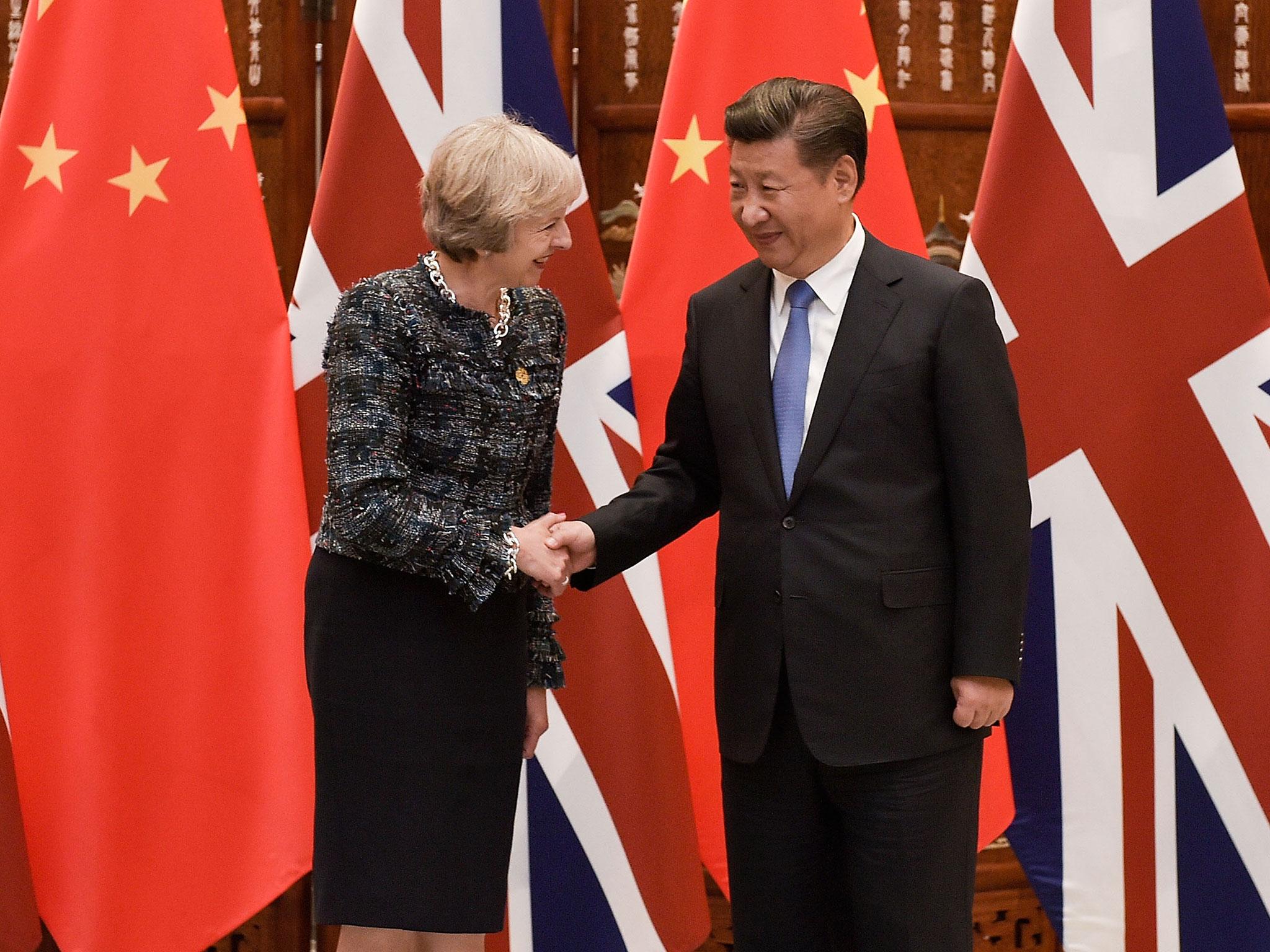Post-Brexit, Britain could become Europe’s trade door to the world – and it’s all down to China
Our fascination with Europe and Brexit is perhaps obscuring the two greatest changes and opportunities in global trade. These are happening neither in European nor Anglo-Saxon countries, but in China and Africa


Your support helps us to tell the story
From reproductive rights to climate change to Big Tech, The Independent is on the ground when the story is developing. Whether it's investigating the financials of Elon Musk's pro-Trump PAC or producing our latest documentary, 'The A Word', which shines a light on the American women fighting for reproductive rights, we know how important it is to parse out the facts from the messaging.
At such a critical moment in US history, we need reporters on the ground. Your donation allows us to keep sending journalists to speak to both sides of the story.
The Independent is trusted by Americans across the entire political spectrum. And unlike many other quality news outlets, we choose not to lock Americans out of our reporting and analysis with paywalls. We believe quality journalism should be available to everyone, paid for by those who can afford it.
Your support makes all the difference.Next week Britain will host a Commonwealth Trade meeting in London. This is the time to start resetting the tone of Britain’s engagement with the world, post-Brexit.
Pre-Brexit, many businesses from Commonwealth countries used Britain as a front door to Europe. The reasons for this were simple: there is a common language, a common legal system and Britain is inside the trading block. Soon Britain is to leave. What happens next?
I did not support Brexit. Indeed I actively campaigned for Remain, however “Brexit means Brexit” and we must make this change work.
To make Brexit work, we must now turn our minds to creating opportunities for post-Brexit Britain. Many have said that Britain can now “look outward” again and “re-engage” with the world. While Britain was neither inward-looking nor disengaged from the world, we must focus Britain in a global context, not just a European one.
Our fascination with Europe and Brexit is perhaps obscuring the two greatest changes and opportunities in global trade. These are happening neither in European nor Anglo-Saxon countries, but in China and Africa.
Firstly, in 2012 President Xi of China announced China’s One Belt, One Road policy, which is a massive multi-trillion dollar infrastructure and trade boosting program linking East Africa, Persia, South Asia and China, with an almost after-thought side route into Europe. I have written about this change and opportunity on these pages previously.
Do not underestimate the opportunities that come from this return to Chinese dominance. One Belt, One Road links the second fastest economically growing region of the world (Sub-Saharan Africa) with the third fastest (South Asia) with the fastest (China). How does Britain engage with this growth?
The second great change is the United States scrapping the Trans Pacific Partnership. The TPP was not just a trade agreement, it was a political agreement led by the Americans and excluding China. China responded with the Regional Comprehensive Economic Partnership (RCEP), which was a free trade and political agreement with China dominating but excluding the US.
Asia Pacific countries, when looking at RCEP and TPP, were effectively being asked to choose: “who do you back, the US or China?” The US abandoning TPP has handed Asia Pacific leadership to the Chinese as a gift. I doubt that President Trump realises the scale of his error in scrapping TPP.
In Europe when people think of the TPP and the Pacific they envisage Fiji, Tuvalu and Tokelau and think “so what?” However, some forget that the Asia Pacific region, through its regional cooperation body APEC, includes the small Pacific Islands plus Australia, Russia (yes, Russia has a Pacific coast), China, Japan, Canada, USA, Mexico, Peru, Chile (yes, South America has a Pacific coast too), New Zealand, Malaysia and others.
In fact, the Asia Pacific includes far more than 50 per cent of global trade.
With One Belt, One Road and RCEP taken together, the future economic dominance is split between Africa, South Asia, Asia and the Pacific and it will be led, whether we like it or not, by China.
How do we get Britain to engage with this?
Could the Commonwealth be a mechanism by which Britain could link into both RCEP (through the Pacific Commonwealth countries like Australia, Singapore, Malaysia, New Zealand and Canada) and with One Belt, One Road through South Asian and sub-Saharan African Commonwealth countries like India, Kenya and Uganda?
How could Britain do this?
The Asia Pacific has a great model. It is the APEC Business Traveller’s Card. Senior business leaders in APEC member economies – including the US, Russia, Australia, New Zealand, Peru, Chile, China, Philippines and others – can obtain, each three years, a pre-approved multi-entry business visa to encourage trade. This wonderful little card avoids constant visa applications and speeds through customs via the use of the diplomatic channel at airports.
Imagine if Britain were to lead the push for a business traveller’s card for the Commonwealth? New Zealand, Australia, Canada, Malaysia, Singapore are just some amongst the Commonwealth countries that are sure to welcome the idea. India and Australia are pushing for a system like this in a future Indian Ocean trade block too.
Could Britain signal its new “re-engagement with the Commonwealth”, not by trying to step into a long gone history of leadership, but by offering to serve the Commonwealth by leading the process to create a small but significant improvement to Commonwealth trade, thereby linking Britain into RCEP and One Belt, One Road?
If Britain were to do that, then maybe we would be on the first step to being the Commonwealth’s front door to Europe, to being Europe’s front door to the world.
Andrew MacLeod is a visiting Professor at Kings College London and a Non Executive Director of Cornerstone Capital in the US. He was a Remain campaigner and has now combined with Brexit campaigners to form Brexit Advisory Services at UK's Griffin Law
Join our commenting forum
Join thought-provoking conversations, follow other Independent readers and see their replies
Comments